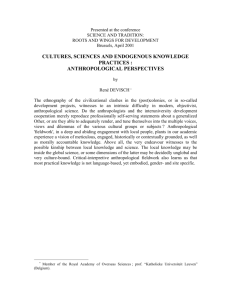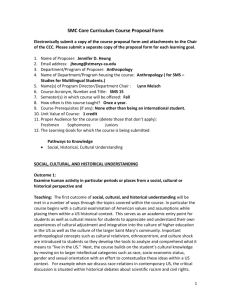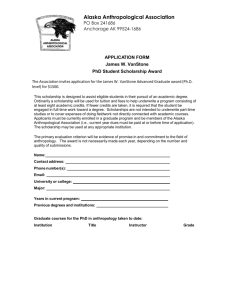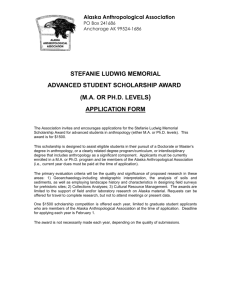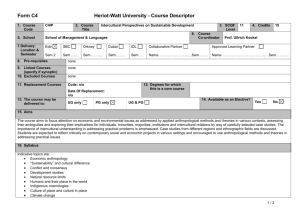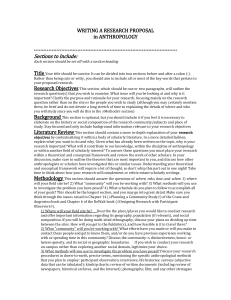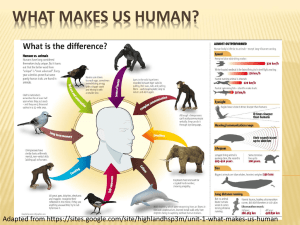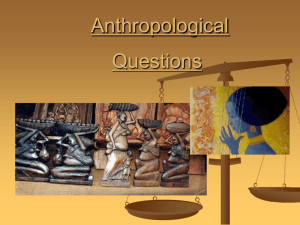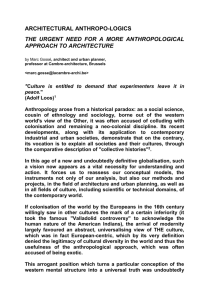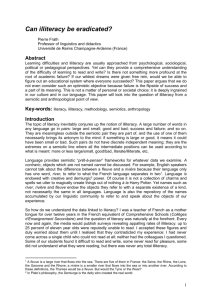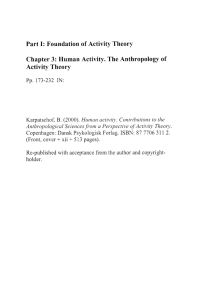Department of Anthro..
advertisement
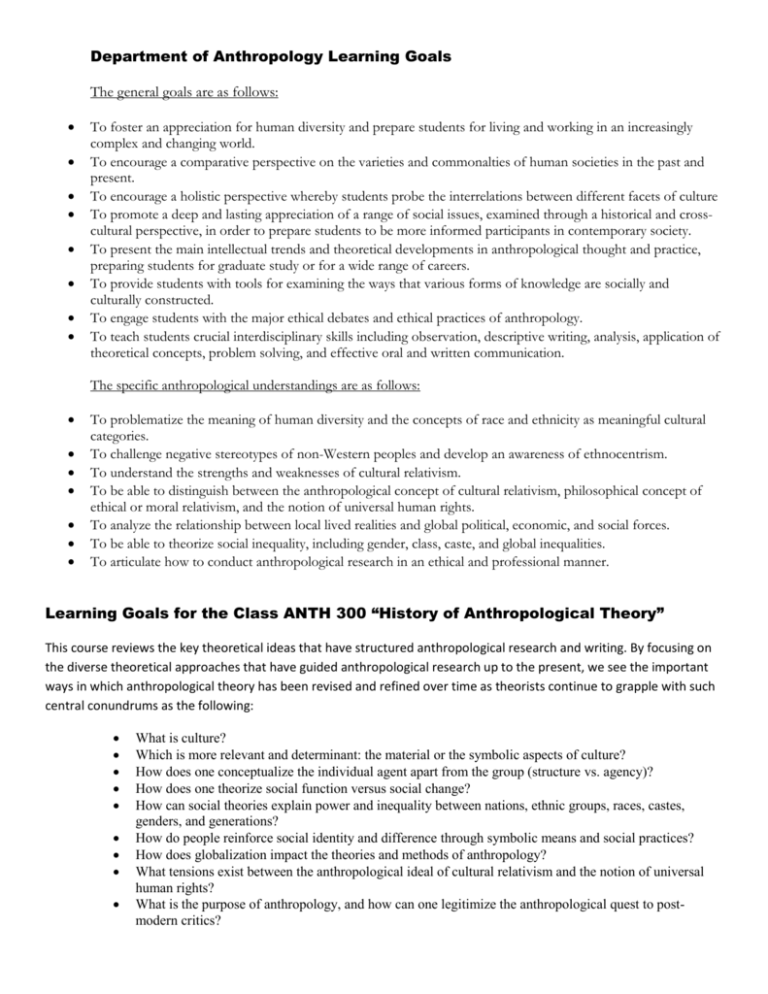
Department of Anthropology Learning Goals The general goals are as follows: To foster an appreciation for human diversity and prepare students for living and working in an increasingly complex and changing world. To encourage a comparative perspective on the varieties and commonalties of human societies in the past and present. To encourage a holistic perspective whereby students probe the interrelations between different facets of culture To promote a deep and lasting appreciation of a range of social issues, examined through a historical and crosscultural perspective, in order to prepare students to be more informed participants in contemporary society. To present the main intellectual trends and theoretical developments in anthropological thought and practice, preparing students for graduate study or for a wide range of careers. To provide students with tools for examining the ways that various forms of knowledge are socially and culturally constructed. To engage students with the major ethical debates and ethical practices of anthropology. To teach students crucial interdisciplinary skills including observation, descriptive writing, analysis, application of theoretical concepts, problem solving, and effective oral and written communication. The specific anthropological understandings are as follows: To problematize the meaning of human diversity and the concepts of race and ethnicity as meaningful cultural categories. To challenge negative stereotypes of non-Western peoples and develop an awareness of ethnocentrism. To understand the strengths and weaknesses of cultural relativism. To be able to distinguish between the anthropological concept of cultural relativism, philosophical concept of ethical or moral relativism, and the notion of universal human rights. To analyze the relationship between local lived realities and global political, economic, and social forces. To be able to theorize social inequality, including gender, class, caste, and global inequalities. To articulate how to conduct anthropological research in an ethical and professional manner. Learning Goals for the Class ANTH 300 “History of Anthropological Theory” This course reviews the key theoretical ideas that have structured anthropological research and writing. By focusing on the diverse theoretical approaches that have guided anthropological research up to the present, we see the important ways in which anthropological theory has been revised and refined over time as theorists continue to grapple with such central conundrums as the following: What is culture? Which is more relevant and determinant: the material or the symbolic aspects of culture? How does one conceptualize the individual agent apart from the group (structure vs. agency)? How does one theorize social function versus social change? How can social theories explain power and inequality between nations, ethnic groups, races, castes, genders, and generations? How do people reinforce social identity and difference through symbolic means and social practices? How does globalization impact the theories and methods of anthropology? What tensions exist between the anthropological ideal of cultural relativism and the notion of universal human rights? What is the purpose of anthropology, and how can one legitimize the anthropological quest to postmodern critics? The class is organized chronologically, and thus provides students with a processual, dynamic view of anthropological theory as distinct anthropologists have developed and re-envisioned it through time. By presenting anthropological theory in a historical context, it aims to: a) demonstrate how specific theoretical concerns within anthropology reflect larger social issues of the times; and b) show how anthropological theorists developed schools of thought that built on or refuted the ideas of their predecessors. Reading assignments couple historical and biographical descriptions of the major anthropological theorists with excerpts of their ethnographic writings and analyses of these writings. In addition, we view some excellent videorecordings that document the fieldwork and intellectual contributions of some great anthropological forefathers and foremothers.
